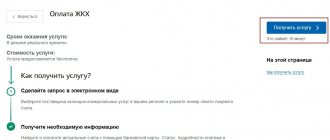Personal Information
Before understanding the legality of posting a list of debtors for housing and communal services , it is necessary to understand the issue of personal data.
Personal data means any information relating to an individual, including full name, year of birth, place of residence, property status. Since this information allows us to determine the identity of the subject of personal data.
When concluding a management agreement for apartment buildings, the management organization receives their personal data from the owners. The work of the management organization includes the functions of receiving primary documents for registration of citizens, as well as maintaining and storing these documents. That is, the management organization receives the right to process personal data of the owners of premises in the apartment building.
The processing of personal data means their collection, systematization, accumulation, storage, updating, modification, use, distribution, depersonalization, blocking and destruction. The collection, storage and distribution of personal data are regulated by Federal Law No. 152 “On Personal Data”. Violation of the law, in particular, the dissemination of personal data about a person, entails administrative liability .
I’m writing to you - what more: the Ministry of Telecom and Mass Communications clarified the issue of disclosing information containing personal data
131530 .
Algorithm for how utilities work with debtors
In order to avoid the recognition of actions as unlawful, with the payment of court fees and penalties to the consumer, the responsible persons of the water utility should adhere to certain regulations when blocking water drainage. It consists of the following actions:
- Vodokanal sends the debtor a written notification of the debt. Explains the debtor's rights to repay the debt within a month or to restructure the accumulated amounts. The water supplier reserves the right to restrict or suspend wastewater disposal services in case of non-payment.
- The notice is delivered to the debtor personally and a signature on the notice is obtained. If the debtor refuses to receive the document, it is sent by registered mail. According to the rules of office work, such documents are accompanied by an inventory of the attachment.
- If the debtor has not responded to the proposal of the utility companies, then they are entitled, if technically possible, to limit the wastewater disposal, but after notifying the debtor three days before these actions. This notice is served on the defaulter in accordance with the established procedure.
- The rules also regulate the notification of the Ministry of Health, Sanitary and Epidemiological Supervision and the Ministry of Emergency Situations of intentions to block the sewerage system of an individual household.
- Having installed a plug on the outlet to the apartment, a report on the work performed is drawn up, a copy of which remains with the negligent payer.
- The procedure for removing the stub occurs after paying debts or signing an installment plan.
- If it is not technically possible to block the allotment, the debt will be forcibly settled. The consequence of the litigation is payment of debts in full with additional amounts of legal costs. In the worst case scenario, the case may lead to an inventory of property with its subsequent confiscation.
Since the sewer blocking procedure involves costs for the enterprise, this issue is a difficult point in recognizing the success of this action. The law does not provide for presenting an invoice to the debtor for the expenses incurred, but it is not entirely correct to carry out these expensive actions at the expense of the utility organization. All public utilities are in a state of self-sufficiency and do not receive funds from the budget that could cover part of their expenses.
There are legal ways to write off debts, but they are not suitable for everyone. It is better to enter into a settlement agreement to repay the debt or try to challenge the court order.
If a plug is installed, it is better to follow the algorithm for removing the blocking. Is it worth spending money on sewer plugging if it can be used for other more necessary activities? Each enterprise decides this issue independently, based on economic indicators of the success of the undertaken method of dealing with defaulters.
Posting lists of housing and communal services debtors
Unfortunately, this situation is not uncommon. Management organizations , and sometimes RSOs, tend to post lists of non-payers for housing and communal services on the doors of entrances or on information boards in the courtyards of apartment buildings. At the same time, they do not think about violating the law “On Personal Data”. For such illegal actions, it is the management organizations that can be held administratively liable.
Some management organizations cleverly circumvent the law by posting information about housing and communal services debtors with anonymized data. For example, only the apartment number and the amount of debt. They read that aggregated information without disclosing other personal data does not make it possible to identify a person. Therefore, the information can be considered anonymized and confidentiality is not required in this case.
But you should not use these tips to avoid being subject to administrative fines for disclosing confidential information . It is better to work with debtors individually using a different scheme. For example, conduct personal conversations with defaulters, discuss the problems of debtors at general meetings of owners, or announce the total amount of debt of the apartment building.
Will the personal data of the owners of premises in apartment buildings appear in the public domain?
185111 .
How to find out your housing and communal services debt
Housing and communal services have become commonplace for us. Water in the tap, light, warm radiators in winter - we notice all these benefits of modern life only in those cases when we are deprived of comfortable living conditions against our will. Therefore, it is very important to control the payment for housing and communal services, and for this you only need to find out the debt for utility services once a month and make payments for housing and communal services on the official website of the housing and communal services, the State Services portal, Sberbank, the website of the Moscow Government or any online service that receives information from the GIS Housing and Communal Services.
In the minds of most residents, paying for housing and communal services is not the most pleasant experience, which involves a trip to the housing department, housing office or management company, time costs and searching for an opportunity to get to these organizations during their working hours. If you are lucky and manage to drop by after work, you can pay for utilities at the cash desk or terminal. However, there are also situations when the owners of the premises are not located in the locality and cannot pay their personal presence to these organizations in order to pay for housing and communal services.
It is for such people, as well as for those who value their time and money, that the Internet portal No Fees provides an excellent opportunity for residents of Moscow and the Moscow region to check debts and pay for housing and communal services online. This is convenient - personal presence in the city to search and pay is not required; online it is easy to monitor the integrity of tenants or employers if they are responsible for paying for utilities. Well, one more, important factor is that it’s simply convenient when, from anywhere in the world, for example, being in the UAE on New Year’s, you can pay for heating in an apartment in Dolgoprudny.
People value time, so they use fast and reliable ways to find and pay debts, and housing and communal services are no exception. This proven method is our online service:
- service work seven days a week;
- the procedure from the moment the request is sent until the payment is completed takes only 2-3 minutes;
- all information is up to date and is taken directly from the GIS housing and communal services database;
- payment is possible by any bank card;
- guarantees of complete and prompt write-off of debts for already paid housing and communal services;
- In addition to housing and communal services, on the portal you can find out tax debts and pay taxes online, find debts from bailiffs and also pay them, check traffic police fines, find out tax identification number, loan debts and much more.
Anyone who knows the personal account number of an apartment or non-residential premises can find out about the debt for utilities.
A personal account is an individual number that is assigned to a residential premises and to which housing and utility bills are charged. If the owner sells the home, the personal account passes to the new owner.
Suppliers of certain types of utility services also assign a separate number to the premises - a personal account, payer code or subscriber number. If you receive separate receipts for payment of housing and communal services, for example, a separate bill for light or for contributions for major repairs as the owner of the premises, you can find out about the debt on them by using this individual number.
To pay by any method, you need to know the name of your utility provider and your personal account number. These are indicated on the receipts that the service provider sends each month. When you enter this data, the current amount will be loaded automatically; it is not necessary to enter it.
The personal account number does not change, so you can pay for utilities using receipts from previous months. The main thing is that the service provider does not change.
At the post office, at bank branches, ATMs and bank apps, you can pay using the QR code from the receipt. The QR code contains information about the personal account and service provider, so you can scan it even from a paid receipt for any month. The amount from this receipt is not included in the code - they will not offer to pay it a second time. The amount that the supplier wants to receive at the moment will be loaded.
ATTENTION! Debt for an apartment is serious, although many turn a blind eye to it.
To check the debt that has accumulated during the period of delay, you need to do the following:
- Contact the organization servicing the house. This can be done by calling or appearing in person. To receive new information about the amount of debt, you only need to indicate the address of your home.
- Visit financial organizations that accept payments from residents for housing and communal services. To find out information about the debt, you can provide both an address and a personal account.
- Use the services of various portals on the network, having previously completed authorization . Using official portals, you can obtain account information and debt at any time of the day or night.
But you need to remember about Internet security so that important information does not fall into the hands of scammers. To do this, you need to use official resources, for example, State Services is a suitable option.
As already noted, the easiest option for checking debt via the Internet is to go to the State Services website. In its open spaces you can not only view information about debts, but also:
- consistently receive information about accounts;
- contribute funds for general services.
Initially, you will need to register, you will need to indicate the citizen’s full name, email address and phone number. After registration, the client will be redirected to his personal account. Further path through the portal:
- Click on the “Accruals” tab.
- Go to the “Personal Accounts” section and indicate the payer code.
- If it is necessary to close the debt, the manipulation can also be performed in the “Accruals” section. In the “Payment for services” section you will need to select the organization providing the services. The name appears on invoices sent by mail. Next, select the region and payer number. Then you need to click on the “Pay” button
There are many ways that help you find out about housing and communal services debt using a personal account through the World Wide Web: Internet banking, PGU.MOS resource, electronic payment systems, special online services. All this is convenient and profitable, because in order to carry out actions you do not need to go anywhere. Data is available around the clock.
There are a few additional options to note for getting information about rent arrears in 2021 . The simplest of them is to work with ATMs and terminals. To do this, you will need one of the received receipts with amounts for past periods.
In the terminal, the item “Making utility bills” is highlighted. You need to write down the address and month there. The window will display the entire amount of debt. If you wish, you can pay for everything.
ATTENTION! The easiest way to find out about a debt by name is to contact the post office, where specialists will provide the necessary information. Or use special terminals.
There is another simple option - contact the settlement center. You just need to go to the portal address indicated on the payment document sent monthly.
Roskomnadzor's response
In connection with the current situation, management organizations sent a request to Roskomnadzor, is the apartment number personal data of an individual and will it be considered a violation of Federal Law No. 152 to place information about his debt on the information boards of the management company, indicating the amount of debt?
In its response, Roskomnadzor referred to Article 3 of Federal Law No. 152, according to which personal data means any information directly or indirectly related to an identified individual. According to the agency, this information should be personalized to allow identification of the subject of personal data.
Therefore, the apartment number, according to Roskomnadzor, without specifying additional information is not information that allows one to uniquely identify an identifiable individual. That is, posting information about the debtor indicating his apartment number and the amount of debt, but without his full name, cannot imply the processing of his personal data . This, accordingly, does not constitute a violation of the Law “On Personal Data”.
Answers to questions from March 11, 2021
49240 .
How and where to look at receipts for an apartment on a personal account
- By contacting the management company. After standing in line, contact a specialist, giving the exact address of the apartment where you need to clarify this or that payment.
- Using a terminal or ATM. On the device monitor, select “Utilities” and enter your data in the window that opens – full name and place of residence. Next, select the period for which you are interested in payments, and get all the necessary information. What’s especially good is that once you recognize a debt, you can pay it off immediately without leaving the terminal. A guarantee of the security of your payment is a payment receipt, which is issued by both the terminal and the ATM.
- In the bank. Take the old receipt with payment details and give it to the cashier. It provides up-to-date information, and you can pay the required amount at the same cash register. When choosing this method, keep in mind that banks usually tend to charge a commission for their services, and paying for utility bills is no exception.
- By phone. Dial one of the numbers of the relevant authority and quickly receive any information on payments! Each service has its own number, and it’s easy to find out - as a rule, it is indicated on the receipt, so find one of the old ones and everything will work out. The operator will need to tell you the address where the information is needed and your full name.
- In the Internet. The easiest way to check payment information is via the Internet, because you don’t even have to leave your home. The algorithm of actions is as follows:
- Go to the housing and communal services website;
- Find the page of the specific service whose services you want to pay for;
- Register on the site from the list of those proposed to receive account information;
- Follow the link to the bank's website and pay for the receipt received.
- Rent24. Register on the website kvp24.ru, and you will be able to see current and regularly updated information about payment receipts in your personal account every month.
- Peney.net. Navigation on this site is also simple - select “Debts for housing and communal services” on the left, and enter your personal account number in the empty line on the page. After confirming to the system that you are not a bot, you will see your account status. We especially note the availability on this site of the ability to connect an SMS alert when a debt arises.
Arbitrage practice
However, this explanatory letter from Roskomnadzor cannot be taken at face value, since judicial practice indicates otherwise. Of course, each case is individual, so courts in different regions make different decisions on this issue. And not always in favor of management organizations.
Moreover, it is considered a violation to even provide, at the request of the chairman of the MKD council, a printed list of debtors indicating their apartment numbers and the amount of debt. For example, by a decision of a judge in the city of Kirov, the management organization was found guilty of committing an offense under Article 13.11 of the Code of Administrative Offenses of the Russian Federation, but got off with a warning.
The deputy head of the management company issued, upon request, a letter to the chairman of the council of the apartment complex, enclosing the requested list of debtors, indicating their apartment numbers and the amount of debt incurred for payment of housing and communal services.
The court considered this a violation, since the address of an individual is his personal data. Therefore, indicating the address allows you to identify an individual, which is an unauthorized distribution of personal data of the owners of premises in the apartment building .
By another decision of the Ulyanovsk court, the homeowners' association was found guilty under Article 13.11 of the Code of Administrative Offenses of the Russian Federation of disseminating personal data without the consent of their subjects. These actions violate the rights of citizens and the requirements of current legislation. As a result, the HOA imposed an administrative fine.
And another decision of the Cheboksary court issued an indictment against the management organization, which posted lists of debtors indicating their apartment numbers and the amount of debt on the doors of the apartment building entrances. The court considered this a violation of the processing and distribution of personal data, which is qualified by a fine of 5,000 rubles under Article 13.11 of the Code of Administrative Offenses of the Russian Federation.
Positive judicial practice for the Criminal Code under Article 7.23.3 of the Code of Administrative Offenses of the Russian Federation
222350 .
How to view the history of payments for an apartment using a personal account
Every month, residents receive an invoice, which, however, may be lost; in addition, the modern pace of life often affects people’s ability to clarify the payment situation in a timely manner, which, however, does not relieve them of responsibility. In this article we will provide information on how to check payment for housing and communal services.
This method is convenient for consumers who live in small cities and do not have home Internet. The big advantage of this option is that they will give you a new receipt if the unpaid one was lost. The big minus is the queue, where the wait can last for several hours.
We recommend reading: Are Vipdomet Free for Diabetes Mellitus?
Consent of the subject of personal data
According to paragraph 1 of Art. 6 Federal Law No. 152, the operator in our case, represented by the management organization, can process personal data with the consent of their subject for the purpose of executing the MKD management agreement.
In accordance with clause 2 of Article 162 of the Housing Code of the Russian Federation, under a management agreement, the management company, on the instructions of the owners, performs work and provides services for a fee, as well as carries out other activities for the purpose of managing the apartment building. Therefore, the processing of personal data of owners is necessary for organizing the execution of work under the contract, charging fees for housing and communal services, printing and delivering receipts.
But debt collection work is carried out not for the management company’s execution of the management agreement, but to monitor the fulfillment of obligations by the owners. Therefore, in order to carry out claim activities, the management organization must obtain written consent from the owners to process their personal data. You cannot post or publicly disclose personal data about housing and utility service defaulters in any form. This is a gross violation for which the Criminal Code may receive a fine.
In addition, regardless of whether or not it is necessary to obtain the consent of the owners to process their personal data, the management organization is obliged to ensure their confidentiality. That is, do not allow the dissemination of personal data without the consent of the owners (Clause 1, Article 7 of the Law “On Personal Data”).
Dissemination of personal data means their transfer to a certain circle of persons or familiarization with them to an unlimited number of persons, including publication in the media, posting on the Internet or providing access in another way. Therefore, the management organization does not have the right to transfer or disclose their personal data without the consent of the owners.
According to Article 9 of Federal Law No. 152, the consent of the subject of personal data to their processing is drawn up in writing and contains:
- Full name, address of the subject of personal data, number, date and issuing authority of the citizen’s passport;
- name (full name) and address of the management organization receiving the consent of the subject of personal data;
- the purpose of processing personal data (execution of the apartment management agreement, collection of debt for housing and communal services, provision of services for charging, printing and delivery of receipts);
- list of personal data for the processing of which the consent of the subject of personal data is given (full name, address, list, volume and cost of consumed housing and communal services, accounting and registration data, information about family composition, other data necessary for calculating fees for housing and communal services, amount of debt);
- a list of actions with personal data for which consent is given, a general description of the methods used by the Criminal Code for processing personal data;
- the period during which the consent is valid and the procedure for its withdrawal.
Management companies may not provide owners with information not provided for by the Disclosure Standard
21541437 .
Features of heat energy consumption in MKD
When justifying its requirements, the management organization must understand that heating is a special type of utility service. If water is consumed from a water tap, water supply is consumed at water collection points (water taps), electricity is consumed at connection points for electrical appliances, then heat transfer into the atmosphere of heated premises from the coolant circulating in the heating system occurs not only from heating radiators.
Heat energy is transferred to heated rooms due to thermal conductivity, radiation and convection, and heat spreads not only from radiators, but also from other elements of the heating system: pipelines, risers, sun loungers, etc.
Bodies, objects, air, having received heat energy from the coolant, in turn transfer heat to other bodies and objects, and heated air masses transfer heat to other areas of space.
In accordance with the laws of physics, heat is transferred from more heated bodies to less heated ones, and the heat energy contained in the air, in the interior elements of the room, is also transferred to neighboring rooms through the walls.
According to clause 6 of the Decree of the Government of the Russian Federation dated August 13, 20016 No. 491, the common property includes an in-house heating system consisting of risers, heating elements, control and shut-off valves, collective (common house) heat energy metering devices, as well as other equipment located on these networks.
The central heating system of the house belongs to the common property, and the heating service is provided both for individual consumption and for spending on general household needs.
Taking into account these features of the heating utility service, an apartment building is recognized as a single heating facility. The housing legislation of the Russian Federation establishes that all thermal energy supplied to the apartment building is distributed among the apartment building premises in proportion to their area.
Thus, an unauthorized transfer to autonomous heating of a separate room in an apartment building leads to a change in the heat balance of the house and disruption of the engineering system.
Unauthorized dismantling of heating devices in a separate room does not indicate that thermal energy is not consumed, since the energy is transferred to the house, where it is distributed through transit risers throughout the apartments and common areas of the house, thereby heating the entire house through the enclosing structures of adjacent rooms. At the same time, the air temperature in adjacent rooms decreases. The central heating system not only heats the air in the room, but also partially transfers heat to the structural, load-bearing and enclosing elements of the room, preventing its accelerated destruction from the adverse effects of the environment.
How to certify attachments to a claim for debt collection for housing and communal services
120840
Responsibility
Violation of the collection, storage, use or dissemination of personal data incurs administrative liability under Article 13.11 of the Code of Administrative Offenses of the Russian Federation:
- for citizens - from 300 to 500 rubles;
- for officials - from 500 to 1 thousand rubles;
- for legal entities - from 5 to 10 thousand rubles.
Access rights to GIS housing and communal services
259720 .
If you have any questions, you can always contact us for advice. We also help management companies comply with 731 Russian Federation Regulations on the Information Disclosure Standard (filling out the Housing and Communal Services Reform , management company website, information stands) and Federal Law No. 209 ( filling out the Housing and Communal Services GIS ).
We are always happy to help you!






